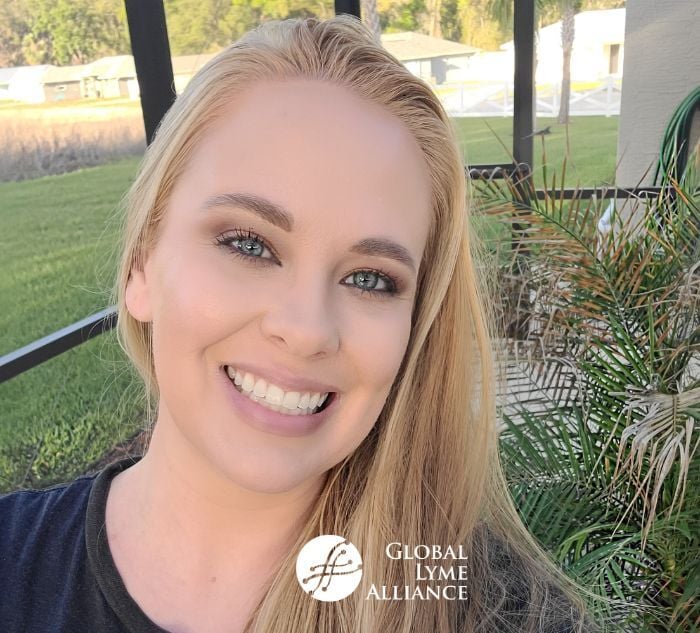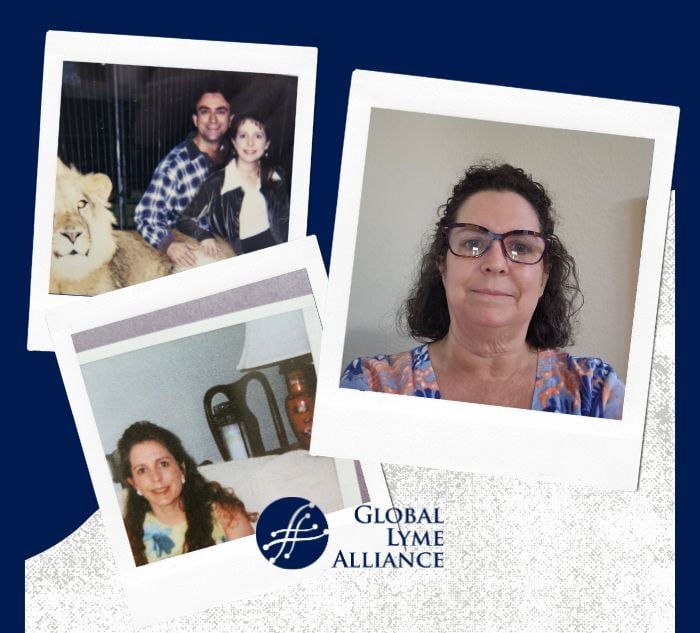by Susan Pogorzelski
#MyLymeLife
Do you dream of the day when rest is a choice, not a need? And when your friends and family truly understand the toll that Lyme disease takes on your body and your mind?
It’s eleven in the morning as I write this, a full ten minutes since I’ve woken up from my first nap. My life is routine these days, thanks to Lyme disease. Wake at seven, let the dogs out, force myself to eat breakfast so I can swallow a handful of antibiotics, then back to bed because the fatigue lies heavy, like a blanket on both my mind and body. Only then, when I awake a few hours later, am I finally able to function.
Then there’s lunch, supplements, household chores or working on the new novel or, if I’m having a really good day, a much-needed trip to the grocery store. These activities are always followed by an afternoon nap. If I’m feeling well, it’ll last two hours at most. If I’ve pushed myself beyond my known limitations, I’ll sleep well past dinnertime, waking up only when my dogs nuzzle me with their reminder to feed them, waking up only because they need me.
My friends used to joke about my napping, and because I had a pretty good sense of humor back then, I laughed along with them. I wasn’t blind to how ridiculous it seemed. I was young, seemingly healthy, with passion and ambition guiding me forward in life. So why was I sleeping my life away?
Every day after school, I’d fall asleep on the couch until my parents woke me up for dinner and homework. I remember becoming irrationally angry with them, wondering why they couldn’t let me sleep until I was ready to wake up. I didn’t understand it then, but I recognize it now: my body was refueling itself, and waking up before my energy was fully restored meant that I wouldn’t have enough to get through the night and into tomorrow.
When I was in college, with a diagnosis of Chronic Fatigue Syndrome, I wisely scheduled my classes as far apart as possible so I’d have enough time to rest in between. I didn’t know I had Lyme then, and I didn’t understand the implications Chronic Fatigue Syndrome could have on a life. I only knew that sleep restored me while life seemed to drain me.
“Were you taking a nap again?” my friends would ask, their voices filled with amusement.
I’d shrug my shoulders and laugh along with them. “You need coffee, I need sleep,” would be my reply.

While everyone else spent their evenings readying themselves for a night on the town, I made sure I had enough time to rest before getting dressed. When I entered the working world, early bedtimes became a staple, and I turned down more than one fun day out on the weekend because I knew I needed to conserve my energy for the week to come.
When I was finally diagnosed with Lyme disease, the reason for this inherent need for sleep finally became clear to my family and friends, though there are still days when they struggle to understand why I can’t accept their invitation for a spontaneous night out. Even now, they’ll send me cute memes and funny cartoons about napping, and I’ll laugh along with them because it is cute and it is funny, and I’m grateful to have my sense of humor back. But sometimes I wonder if they will ever really understand that this is a need, not a choice. I’d never choose sleep over friends.
I’d never choose this life with Lyme.
I wish more than anything I had the energy to be a part of the world like I want to be. I’d spend my time with friends and family and be the mom to my dogs that I want to be. I’d visit museums and attend concerts and travel to places near and far. I’d provide for myself, I’d be independent again.
I’ve been lucky in my life that I’ve been able to do so much despite this illness, but that’s what makes it that much more difficult: knowing what I was capable of before, knowing how limited I am now, knowing how much more of the world I still want to experience.
So I’ll finish writing this essay and make myself some lunch. Then I’ll play with the dogs or finish some chores until I notice my energy beginning to drain. I’ll wander to the couch and lie down and close my eyes.
And when I sleep, I’ll dream of the day when I can do so much more.
Opinions expressed by contributors are their own.
Susan Pogorzelski is the author of “The Last Letter,” a semi-autobiographic novel about her struggle to find a Lyme diagnosis and subsequent journey through recovery.

GLA
Admin at GLA






